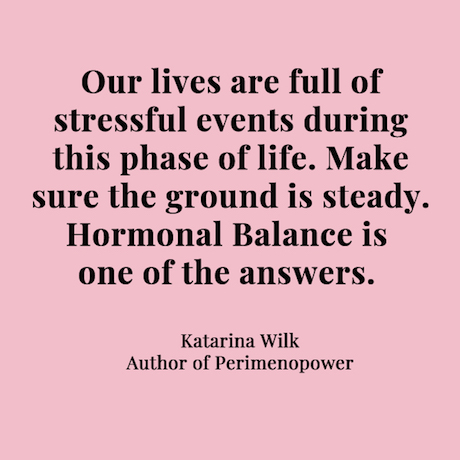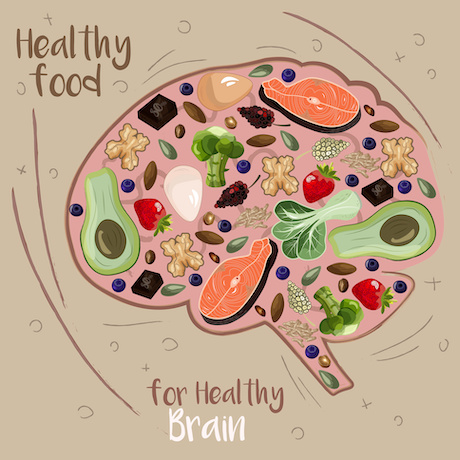Hormone Replacement Therapy: What It Really Is And Are You A Good Candidate?

This summer we started our journey into the variety of strategies for you to consider as you traverse perimenopause and menopause. Since most of you have or will experiment with natural methods first, I started the remedies portion of this series with just that: the natural way first, including vitamins, supplements and a variety of non-prescription therapies where experts have seen positive results.
Today, let’s turn to the most controversial strategy: hormone replacement therapy, also known as HRT. HRT is a term used to describe estrogen, testosterone and progesterone treatments.

If I can emphasize one thing and one thing only…it is that now is the time to take stock of your lifestyle choices and reap the amazing benefits of approaching your “second half” with wellness at the core of your decisions.
Popping a pill, rubbing cream on your belly and bottom, or whatever choice you make to help relieve you of your symptoms may improve your symptoms. Yet, consciously taking control of your body and life must include making better choices about your lifestyle. If you know your diet looks like it did when you were 30, time to re-examine. If you are still trying to work off poor mistakes you’ve made, time to re-evaluate. Combining choices that contribute to your wellness, along with a strategy you and your menopause specialist decide is by far the best way to address perimenopause and menopause.
“The woman in menopause, who is becoming the queen of herself, finds herself at a crossroads of life, torn between the old way she has always known and a new way she has just begun to dream of.”
Christiane Northrup, M.D
Ladies, we are no longer in our 20s (or 30s). It’s time to make the change. Since the research on perimenopause and menopause symptoms has increased exponentially since 2002, we know a lot more. Not only do we “flash” during the day and night, we experience:
- •Increased irritability,
- •more anxiety,
- •sleep deprivation and disruption(s),
- •weight gain,
- •declining vision,
- •hair thinning or loss,
- •brittle nails,
- •eye dryness,
- •“menofog” – forgetfulness/lack of focus/cognitive ability decreases
And the list goes on…all because our estrogen is coming to the end of its time with you.
Hormones

So, my dear friends, there are estrogen receptors in the heart, bone, brain, bladder, breast, vagina, colon and beyond. Estrogen has other important jobs besides helping with contraception. It assists in very important physiological functions. Estrogen is the culprit for the decline in the quality of your hair, your skin and yes, even your vision. While these are manifestations you will notice because they are on the “outside” of your body, what you won’t notice is clogged arteries or losing bone, until that dreaded doctors visit. As Dr. Tara Allmen says, “Without estrogen, we have a lot less sugar and spice and everything nice.”
There are over 65 million menopausal women today and most are not using hormone therapy mainly because they are scared of the risks and/or confused about where to even start.
The History of HRT
In 2002, there was a study conducted called the World Health Initiative (WHI) that was intended to test the effects of postmenopausal hormone therapy, diet modification, and calcium and vitamin D supplements on heart disease, bone fractures, and breast and colorectal cancer. We are still feeling the ill-effects of the misinformation communicated.
Communication around the initial trial results alarmed doctors and patients alike. The report purportedly found an increase in heart disease, stroke, and breast cancer among women between 50-79 years old. Immediately, the use of estrogen dropped by 71 percent from 2001 to 2009, according to the North American Menopause Society.
A principal investigator, Dr. Robert Langer M.D. of the landmark women’s health study says initial results that linked HRT to breast cancer and heart attacks were misleading and distorted for publicity. Others involved in the study claim the findings were merely misunderstood. Seventeen years on, a new consensus about risks and benefits is emerging, but too late for a generation of women who abandoned or avoided HRT due to reported risks.
“Highly unusual circumstances” surrounding the early termination and reporting of the Women’s Health Initiative (WHI) estrogen-progestin trial in 2002 resulted in “misinformation and hysteria” that persist today,” says Robert Langer. He was lead investigator of a WHI vanguard site and involved in the early leadership of the study, including as chair of the principal investigators committee.
“Good science became distorted and ultimately caused substantial and ongoing harm to women for whom appropriate and beneficial treatment was either stopped or never started,” Langer wrote.
What We Now Know About HRT

Since that time, many studies have been conducted where researchers look closer at the data by age group.
Researchers now confidently know that hormone therapy started earlier and by menopausal women aged between 50 and 60 years or within 10 years of menopause, have very few risk factors. New data now shows that the risks only apply to older menopausal women who begin taking the medication late into menopause.
Dr. Robert Langer, M.D. says that fears like the risk of breast cancer, or sometimes heart attacks or strokes, surface quickly in discussions with a woman’s doctor when complaints of menopause symptoms are raised. Langer adds, “The reporting of the WHI fed those fears to a degree not warranted by the small increase in breast cancer rates that probably only reflected earlier discovery of existing cancers, or by the fact that the heart attack risk and stroke was only seen in women who started more than 10 years after menopause.”
A 2017 study at Brigham and Women’s Hospital in Boston looked at the long-term death rates from all causes as well as the rates of death from specific causes. The new findings are very reassuring. In the overall study of women aged 50 to 79 years, researchers found no increase or decrease in total mortality or death from cardiovascular disease, cancer, or other major illnesses.
According to Dr. Tara Allmen, MD, a leader in the menopause medical field (and author of my favorite book on this topic Menopause Confidential), “estrogen therapy is the most effective treatment for hot flashes, night sweats, and vaginal dryness.” She recommends systemic estrogen therapy so it will absorb into your bloodstream and not only help with the above pesky symptoms, but all of the other annoyances outlined above.
Other data we know about hormone therapy:
- •The best candidate for hormone therapy is a healthy woman suffering from menopause symptoms, less than 10 years since they’ve had their last period and under the age of 60
- •When you start menopause is another factor a NAMS doctor will ask before guiding you to hormone therapy
- •Risk is highly individual and associated with ethnicity
- •Just like the risk is individual, relief will be felt individually
- •The greatest risk factor for hormone therapy is age
- •Late perimenopause is associated with rapid bone loss and more sleep difficulty and hormone therapy has been proven to help
- •Women suffering through perimenopause issues also have an array of choices, like continuous low-dose birth control
To this day, when discussing menopause issues with my clients there are always questions that come up about the risk of breast cancer or stroke (and sometimes even anger that I even raise hormone therapy!) even though several studies have proven the opposite.
I have a duty to them to help them choose their individual plan for their “next half” and my job is to help them learn the facts then make the choice that is best for them. Even if hormone therapy is not the only choice, I want you, and them, to know the facts that our daughters have access to and tools our mothers did not.
I hope this article will help you take the next important step to finding a menopause specialist.
- About the studio
Alexandria Wellness offers achievable answers for anyone who is tired of chasing fitness and health without a clear plan, someone who has struggled and is not satisfied with their fitness and wellness or someone who is open to maximized healthful longevity and fitness along with healthful weight loss. Adrien and her team offer help with food guidance, body acceptance, sleep and stress issues, and insist you have fun along the way.
Schedule your free 30 minute consult here!
Alexandria Wellness
215 North Payne Street
Alexandria, VA 22314
703.299.9333
contact@alexandriawellness.com







